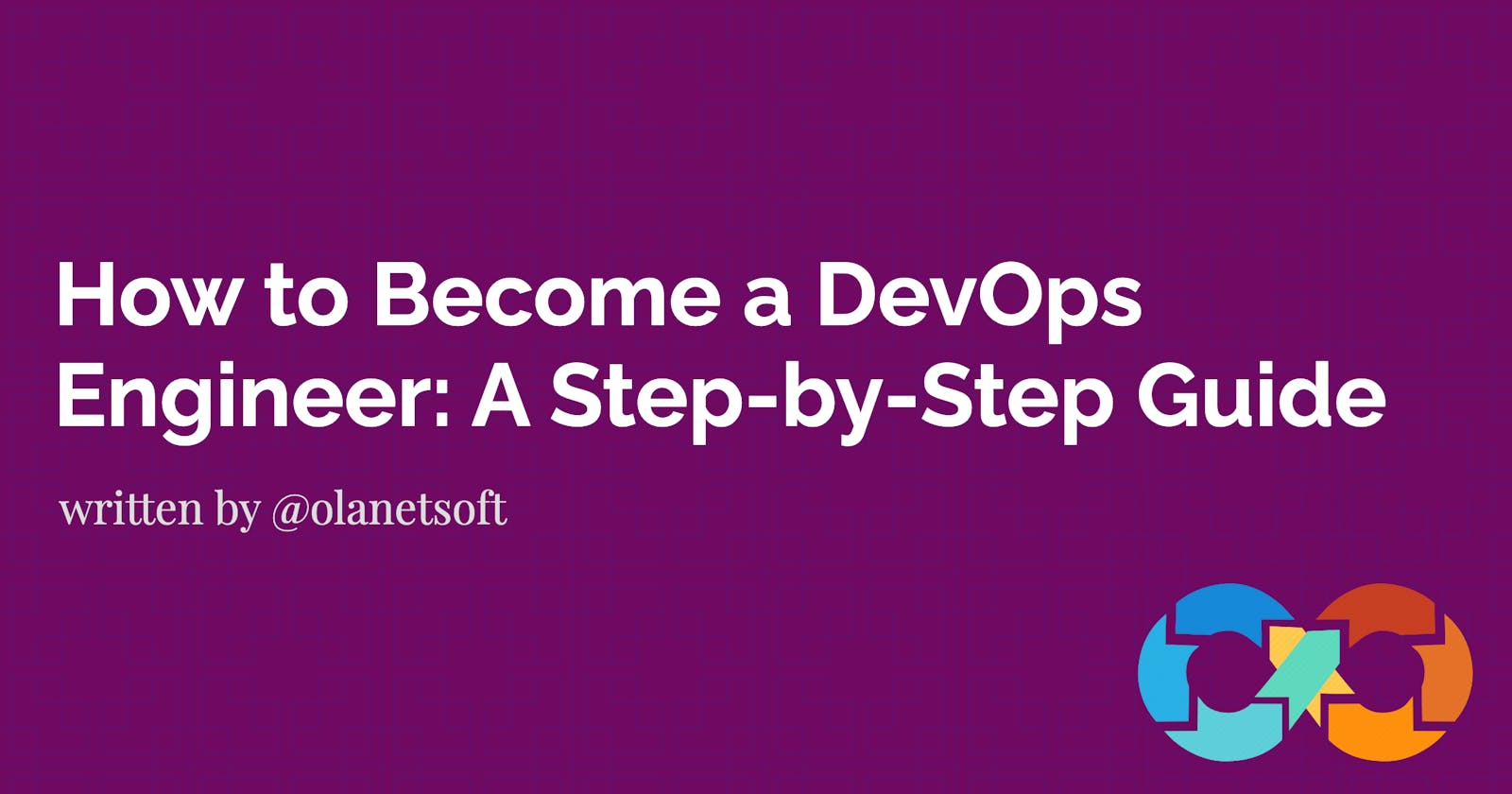Thank you for taking the time to read this article. I want to introduce you to the DevOpsFriday series, in which I'll be sharing what I'm learning and researching in the realm of DevOps.
In this article, I'll share a guide that I find helpful for anyone new to DevOps, regardless of their background.
What is DevOps?
DevOps is a product advancement approach including Continuous Development, Continuous Testing, Continuous Integration, Deployment, and Monitoring.
It's not just about tools and technology; it's about developing and maintaining scalable web apps as a continuous habit.
Who is a DevOps Engineer?
A DevOps engineer offers methods, tools, and approaches to balance needs throughout the software development life cycle from coding and deployment through maintenance and upgrades.
Steps To Get Started
It's necessary to learn a programming language
You'll need to learn a programming language well. It makes no difference which one you use; you'll need it to write automation code.
DevOps relies heavily on automation.
You can learn Python, Java, Ruby, Golang, and other programming languages.
Although you will not be heavily creating the application as a DevOps engineer, you will be working directly with the development team to improve and automate chores for them.
Learn about several operating system fundamentals
The majority of the servers are Linux-based; you must be familiar with the Linux operating system and have experience with the Command Line Interface.
Process management, threads and concurrency, sockets, I/O management, virtualization, memory management, and other topics must all be learned.
Protocols, Networks, and Security
- TCP/IP, HTTP, HTTPS, SMTP, FTP, setup Firewalls to secure application, understand how IP addresses work, ports, DNS function, Load Balancers, Proxy Servers, and other protocols that play a major role in talking with different devices across the network.
Learn how to code Infrastructure
You should learn about app containerization and be familiar with container tools such as Docker and Kubernetes.
Ansible, Chef, Salt, and Puppet are configuration management tools.
Container orchestration and infrastructure provisioning are two further areas.
Continuous Integration and Deployment (CI/CD)
A DevOps engineer's major role and obligation are to set up a complete CI/CD pipeline.
In DevOps, any code changes made by developers, such as new features and bug repairs, should be incorporated into the existing program and released to end-users continuously and automatically.
As a result, the terms "Continuous Integration" and "Continuous Deployment" were coined.
Cloud Providers
- You should familiarize yourself with the major cloud providers.
- The majority of today's apps are cloud-native. AWS, Azure, and Google Cloud are the top cloud providers, and they all offer free training on their products.
Monitoring and Log Management
It's critical to monitor software after it's in production to measure performance and identify issues with your infrastructure and application. As a DevOps engineer, one of your roles is to:
- Install program for monitoring
- Configure infrastructure monitoring for your Kubernetes cluster and underlying servers, for example.
Version Control - Git
- All of the automation logic stated above is written as code. You maintain this code and configuration files with a version control tool like Git like developers handle their application code.
Language for Scripting
- You'll need to write scripts and tiny programs to automate processes because you'll be working closely with developers and system administrators to automate tasks for development and operations.
To do so, you'll need to be familiar with a scripting or programming language. This could be a scripting language particular to the operating system, such as bash or Powershell.
A DevOps engineer should set up a web server such as IIS, Nginx, Apache, and Tomcat in general. They should also be familiar with Caching Servers, Load Balancers, Reverse Proxy Servers, and Firewalls, among other things.
Yay🥳 That concludes today's discussion. Please feel free to add to the list in the comments, and I will update the page. I am presently learning DevOps and am not an expert in any manner.
Resources
I'd love to connect with you at Twitter | LinkedIn | GitHub
See you next Friday in DevOpsFriday series. Take care!!!

